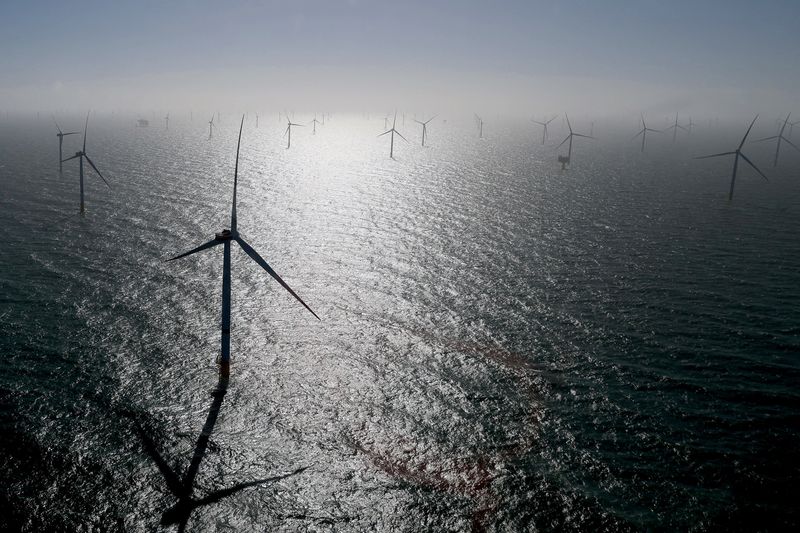ATLANTIC CITY, NJ – The final nail in the coffin for offshore wind energy projects on the East Coast might be in danger by the policies of the very same people touting clean energy.
Politicians like New Jersey Governor Phil Murphy and President Joe Biden, more specifically, their economic policies on energy, inflation, labor and equity could be the foundation for the failure of the very programs they are trying to enable.
Inflation, supply chain issues, and the increase in goods and services due to raw materials and crude oil prices could eventually sink their plans for massive offshore wind energy farms.
The Financial Viability of New Jersey’s Offshore Wind Energy Projects in Jeopardy
New Jersey’s commitment to clean energy and climate change has taken a precarious turn as the financial viability of its offshore wind energy projects has come under scrutiny. With multiple offshore wind farms in development at the Jersey Shore, mounting concerns from residents, politicians, and financial experts are putting these projects at risk.
Rising Concerns
Residents along the Jersey Shore have been protesting the wind farms, fearing potential impacts on the local environment and industries. Politicians, too, are now taking a stand, advocating for a moratorium on wind projects to protect fisheries, ratepayers, and the tourism industry.
Orsted, a company involved in one of the wind farms, has recently raised financial concerns about the project. The company cites rising interest rates and inflation as contributing factors that have escalated the cost of goods and services needed for the project.
A Troubling Trend: Connecticut’s Park City Wind
New Jersey is not alone in facing challenges with offshore wind energy. Connecticut’s Park City Wind, an 800-megawatt project, also finds itself in danger. Developer Avangrid is looking to rewrite, renegotiate, or otherwise alter its contract with Connecticut, citing similar financial hurdles, including inflation, high interest rates, COVID, supply chain problems, and geopolitical issues such as the Russian invasion of Ukraine.
Legislative Response
Senator Declan O’Scanlon, Assemblyman Gerry Scharfenberger, and Assemblywoman Victoria Flynn have expressed growing concerns over the financial risks these projects impose on New Jersey ratepayers. They stated:
“The concerns we raised about the financial viability for these projects… have now been confirmed as the wind industry is experiencing a financial crisis. While we support clean energy projects, we cannot support projects that impose extreme financial risks for the New Jersey ratepayers if these projects fail.”
The legislative leaders are pushing for more support for bills AR181 and SR120, aimed at halting these wind turbine projects immediately.
Is it Time to Reevaluate Offshore Wind Energy?
The simultaneous struggle in both New Jersey and Connecticut highlights the broader challenges facing the U.S. offshore wind industry at this critical juncture. Financial, environmental, and societal considerations are all weighing heavily on these ambitious projects.
While there’s no denying the need for cleaner energy solutions, the existing circumstances call for carefully reevaluating the path forward.
The overarching goal must be to create sustainable, financially viable projects that do not risk the economic stability of the regions they aim to benefit.
The delicate balance between progress towards clean energy and the communities’ financial well-being must be maintained.
The events unfolding in New Jersey and Connecticut may serve as a warning and an opportunity to learn for future offshore wind endeavors nationwide.
